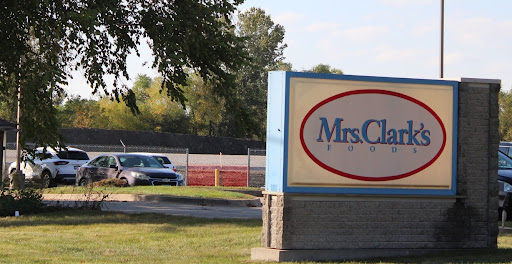Power Breakfast Event Preview: Explore the intersections of recreation and water quality

BUSINESS RECORD STAFF Oct 30, 2019 | 9:33 pm
4 min read time
989 wordsAll Latest News, Power Breakfast Series
There’s a $117 million plan to build whitewater courses, zip lines, canoe and kayak launches, and swimming spots in 80 areas along Central Iowa’s 150 miles of waterways. A big part of that work will be removing three dangerous dams in downtown Des Moines and replacing them with whitewater courses.
But encouraging people to use the waterways raises the question: What do we do about Iowa’s famously green and brown waters, which often have high bacteria, nitrate and, increasingly, toxic algae blooms? There is plenty of talk about cleaning them — and quite a bit of work — but how much progress are we really making?
We’ll ask a panel of experts in agriculture, environmental issues, government, business, development and recreation how we can capitalize on a key moment in Greater Des Moines’ history and a chance to build on considerable momentum in the area. In advance of our Nov. 13 event, we asked our panelists to share the most important way water and business intersect.
We Asked: “What is the most important way water and business intersect?”
Sean McMahon, executive director, Iowa Agriculture Water Alliance
Agriculture represents nearly one-third of Iowa’s entire economy; producing products from plants and animals requires very large quantities of water. Agricultural businesses include farms, farm suppliers, commodity processors and many others. Too much water or too little water drives large swings in crop production, which directly impacts Iowa’s economy. While the critical nature of water supply to agriculture has always been clear, an understanding of the importance of the quality of water leaving our fields, and how it can be improved through conservation practices is more recent. Farmers helped improve water quality by reducing soil erosion by roughly one-third between 1980 and 2015, which substantially cut back on the sediment and phosphorus that enters our waterways. Many farmers have adopted practices that reduce nitrate loss, like improved fertilizer management, cover crops, bioreactors, saturated buffers and wetlands, but we still have a very long way to go. Iowa’s economic future is tied to successful implementation of Iowa’s Nutrient Reduction Strategy. Continued progress will require sound science, partnerships and substantial increased investments from both the public and private sectors in Iowa’s Conservation Infrastructure.
At the most basic level, water is fundamental to human life, so there would be no business without water. Water is foundational for business in so many ways, including providing drinking water to employees and sanitation for our office buildings. Water is also essential to business in several specific sectors, including manufacturing, agriculture, forestry, fisheries, transportation, textiles and energy, to name just a few. It’s hard to imagine businesses getting by for even a day without water.
Kathryn Kunert, vice president, Central Iowa Water Trails Incubator board
With the national unemployment level as low as it is, people have the opportunity to choose where they want to live first, and secondly, find a great job. Because of that, Des Moines is now in competition with Austin, Texas and Denver, Colorado for workforce. If we want to continue to thrive as a region and state, we need to provide potential workers with the lifestyle they want. According to IEDA market research, outdoor recreation and “access to outdoor adventure” are consistently listed as being a top desire when finding a place to live. We have affordable housing, great schools, thriving communities. But we need that extra element to draw people here to fill the jobs. Engaging our waterways is investing in our economy and in our workforce.
Ted Corrigan, interim CEO and general manager, Des Moines Water Works
From a water utility perspective, water and business intersect in a number of important ways. Business needs a reliable source of affordable, high-quality water to support its workforce, to facilitate its processes and, in some cases, for incorporation into its products. Most businesses would find it challenging if not impossible to operate without a reliable source of high-quality water. Water and business also intersect in drinking water production. Public water supply ? the delivery of quality water to our homes and businesses ? is itself a business, employing more than 300 workers in the Des Moines metro area, purchasing millions of dollars in materials and services each year, and providing a valued product to customers. But perhaps the most important way water and business intersect is in the impact business can have on the quality of source waters in Iowa, the raw material water utilities use to produce the single product we deliver. Nothing has more impact on the quality of the water we deliver to our customers than the business practices in our watersheds and recharge areas.
Tom Hadden, city manager, West Des Moines
I’ve always believed the fishable/swimmable goal for surface waters is desirable and attainable. It’s also the right thing to do for a variety of reasons. As more and more people understand the environmental and economic benefits of recreation and environmental stewardship, our state is going to see a positive impact on our ability to attract and retain individuals and families – our future workforce. People want opportunities to enjoy nature, so everyone benefits when we improve our land and water quality. As city manager, I’ve made it a priority for West Des Moines to ensure we’re making sustainable and aesthetically pleasing decisions about how we manage water in our community. Staff from our Engineering Services, Parks & Recreation and Public Services departments make sure we’re incorporating design elements that improve water quality and encourage an appreciation of our natural resources.
Ingrid Gronstal Anderson
I think it’s impossible to operate a business without water. Water is vital to attracting and retaining a workforce (recreational opportunities, quality of life), maintaining a customer base (quality of life, vibrant communities, public health), developing and distributing quality products (breweries, manufacturing), and operational longevity (mitigating disasters such as flooding). Water and business intersect in a number of ways, all of which are critical to success.










